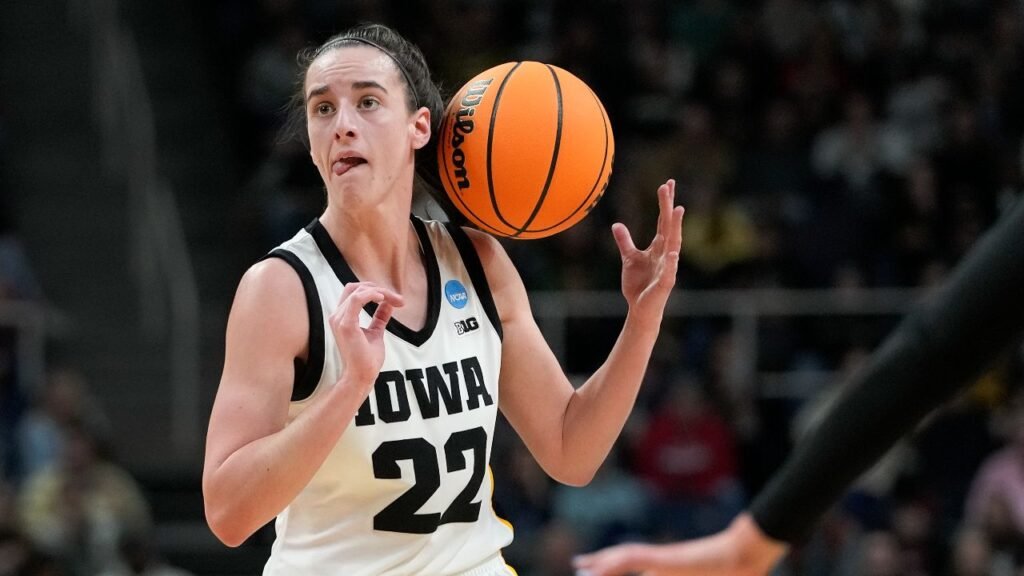In the world of women’s college basketball, few names have garnered as much attention as Caitlin Clark. The University of Iowa star has captured headlines with her exceptional skills on the court, breaking records and inspiring fans across the nation. However, along with her rising fame, unfounded rumors and speculation about her gender identity have emerged, prompting discussions about the impact of such claims on athletes.
This article aims to address the question “Is Caitlin Clark transgender?” by examining her background and career, exploring the origins of these rumors, and discussing their effects on athletes. We’ll look at the facts surrounding Clark’s life and achievements, shed light on the spread of misinformation, and consider the broader implications of such unfounded speculations in sports. By doing so, we hope to provide clarity on this topic and highlight the importance of focusing on athletes’ performances rather than unsubstantiated claims about their personal lives.
Caitlin Clark’s Background and Career
Early Life and Education
Caitlin Elizabeth Clark was born on January 22, 2002, in Des Moines, Iowa. She began playing basketball at age five, competing in boys’ recreational leagues due to a lack of girls’ leagues for her age group. Clark’s athletic prowess was evident early on, with her grandfather noting her exceptional dribbling skills and court anticipation by age five.
College Basketball Career
Clark’s college career at the University of Iowa has been nothing short of extraordinary. As a freshman, she averaged 26.6 points and 7.1 assists per game, leading the NCAA Division I in scoring. In her sophomore year, Clark improved across the board, averaging 27 points, 8 assists, and 8 rebounds per game.
WNBA Draft and Professional Career
On April 15, 2024, Clark was selected as the first overall pick in the 2024 WNBA draft by the Indiana Fever. She made her professional debut on May 14, 2024, leading the Fever with 20 points despite a loss to the Connecticut Sun.
Addressing the Transgender Rumors
Despite Caitlin Clark’s remarkable achievements in women’s basketball, unfounded rumors questioning her gender identity have emerged on social media. These baseless speculations stem from misconceptions about female athletes’ physical attributes and abilities. Some individuals have made unsubstantiated claims about Clark undergoing transgender hormone replacement, but there is no evidence to support these allegations.
Origin of the Rumors
The rumors likely originated from stereotypical assumptions about athletic prowess and gender. Clark’s exceptional skills and physical capabilities have led some to incorrectly associate her abilities with male athletes, disregarding the fact that women are equally capable of achieving great athletic feats.
Lack of Evidence
There is no credible evidence to support the transgender rumors surrounding Caitlin Clark. These speculations serve only to undermine her accomplishments and perpetuate harmful stereotypes. It’s crucial to remember that there is no single “correct” way for a female athlete to look or perform.
Clark’s Own Statements
Caitlin Clark has not publicly addressed these rumors, maintaining her focus on her athletic career. It’s important to respect her privacy and avoid making assumptions about her gender identity based on appearance or abilities.
Impact of Unfounded Rumors on Athletes
Psychological Effects
Unfounded rumors can have severe psychological consequences for athletes. Transgender athletes face disproportionate rates of bullying, harassment, and rejection from peers. These experiences, coupled with discriminatory policies, create hostile environments that can negatively impact mental health and well-being.
Career Implications
Rumors and speculation can significantly affect an athlete’s career. Transgender athletes may be denied opportunities to compete, hindering their athletic development and potential success. This exclusion can lead to reduced self-esteem, decreased sense of belonging, and even impact academic performance, with some LGBTQ youth not expecting to graduate high school due to discriminatory practices.
Public Perception
Public opinion on transgender athletes has shifted, with 69% of Americans now believing transgender athletes should only compete on teams matching their birth gender, up from 62% in 2021. This change in perception can lead to increased scrutiny and pressure on athletes, potentially affecting their performance and overall well-being.
Conclusion
The controversy surrounding Caitlin Clark’s gender identity sheds light on the broader issues faced by female athletes in today’s sports world. Unfounded rumors and speculation can have a significant impact on athletes’ mental health and careers, creating unnecessary obstacles in their path to success. It’s crucial to focus on Clark’s exceptional skills and achievements on the basketball court, rather than engaging in baseless discussions about her personal life.
Moving forward, it’s essential to create a more inclusive and supportive environment in sports. By celebrating athletes for their talents and hard work, regardless of gender identity or physical appearance, we can foster a culture that values diversity and promotes equal opportunities for all. This approach not only benefits individual athletes but also enhances the overall quality and appeal of sports, inspiring future generations to pursue their athletic dreams without fear of discrimination or unfair scrutiny.
